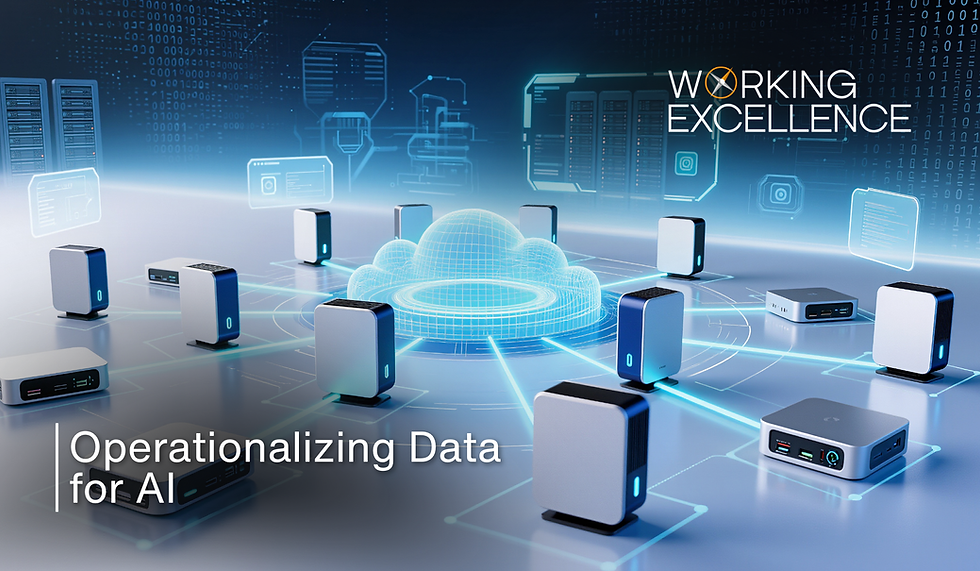Generative AI's Future: A $1.3 Trillion Market by 2032
- Jerry Garcia

- Dec 11, 2024
- 2 min read
The landscape of generative AI is rapidly evolving, with predictions indicating it could become a $1.3 trillion market by 2032. Recent research highlights not only the economic potential of generative AI but also its impact on workplace inclusivity, particularly for neurodivergent employees.
Key Takeaways
Generative AI is projected to reach a market value of $1.3 trillion by 2032.
85% of neurodivergent employees believe generative AI fosters a more inclusive workplace.
Tools like Microsoft Copilot significantly enhance productivity and inclusivity for disabled and neurodivergent workers.
The Economic Potential of Generative AI
The generative AI market is on a trajectory for explosive growth, with estimates suggesting it could reach a staggering $1.3 trillion by 2032. This growth is driven by advancements in AI technologies and their increasing integration into various sectors, including healthcare, finance, and creative industries. Companies are investing heavily in AI research and development, recognizing its potential to revolutionize operations and enhance customer experiences.
Enhancing Workplace Inclusivity
A recent survey conducted by EY revealed that generative AI tools, particularly Microsoft Copilot, are making significant strides in promoting diversity, equity, inclusion, and belonging (DEIB) in the workplace. Key findings from the survey include:
Productivity Gains: 88% of respondents reported increased productivity when using Microsoft Copilot.
Support for Inclusion: 85% of neurodivergent employees felt that generative AI tools contribute to a more inclusive work environment.
Empowerment: 80% of respondents indicated that these tools help them leverage their strengths at work.
The Role of Microsoft Copilot
Microsoft Copilot has emerged as a game-changer for many employees, particularly those with disabilities and neurodivergence. The tool enhances communication, memory recall, and focus, allowing employees to participate more fully in their roles. Specific benefits reported include:
Real-Time Note-Taking: Helps employees keep track of important information during meetings.
Content Creation: Assists in drafting emails and summarizing complex documents, reducing barriers to effective communication.
Increased Confidence: 65% of respondents felt more confident in their work due to the support provided by generative AI.
Long-Term Implications for Organizations
While the immediate benefits of generative AI are clear, organizations are encouraged to view these tools as long-term investments rather than short-term experiments. EY's report emphasizes the importance of:
Inclusive Training: Providing comprehensive training that addresses the specific needs of disabled and neurodivergent employees.
Broader Accessibility: Making generative AI tools available to all employees to maximize overall value.
Focus on Employee Well-Being: Considering the “return on employee” alongside traditional ROI metrics to ensure that all employees can thrive.
Conclusion
The future of generative AI is not only about economic growth but also about fostering an inclusive workplace. As organizations continue to adopt these technologies, the focus must remain on how they can uplift all employees, ensuring that the benefits of AI are accessible to everyone. By prioritizing inclusivity and investing in the right tools, companies can create a more equitable work environment that empowers all individuals to succeed.
Sources
EY: 85% of neurodivergent employees think generative AI creates a more inclusive workplace | UNLEASH, Unleash.



